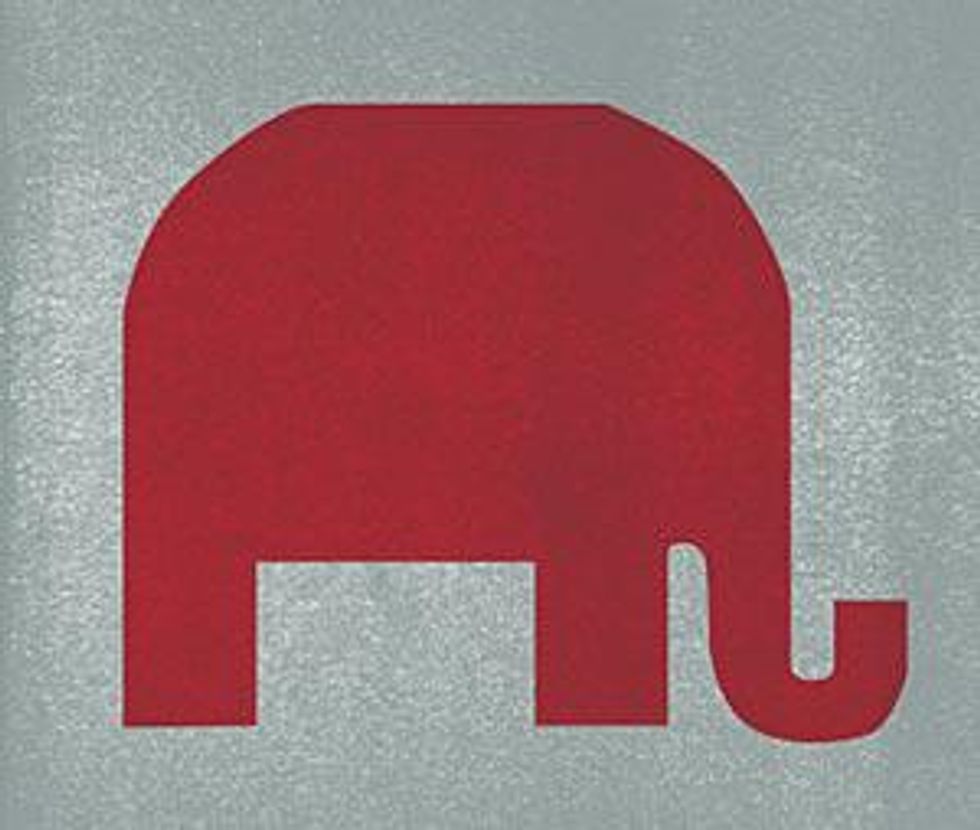
Passage in the Senate was unprecedented, and it signaled much about what still matters in our politics.
January 06 2014 4:00 AM EST
By continuing to use our site, you agree to our Privacy Policy and Terms of Use.

The Senate's recent 64-32 passage of the Employment Nondiscrimination Act was far and away the smoothest LGBT legislative effort in recent memory. Though its prospects remain uncertain in the GOP-controlled House, it's worth reflecting on what's changed, other than the times. Why did this campaign vary so drastically from the 2009-2010 effort, when the legislation withered on the vine in both Democratic chambers?
Here are my five biggest takeaways from the movement's legislative victory:
"You could give me $500 million and I don't think I could move one single Republican," he joked.
He reached out to operatives who work with Paul Singer, a major GOP donor and founder of American Unity Fund, a conservative group that advocates for LGBT freedom and equality. Singer's people had been having their own discussions.
"Part of what we recognized -- especially around all the marriage conversations and how quickly things were moving -- was that there was a real opportunity," says Jeff Cook-McCormac, senior adviser to the American Unity Fund. "We knew there were Republican legislators who didn't feel comfortable getting there yet on marriage, but who wanted to find ways to signal that they were not inclined to exclude gay and lesbian Americans from citizenship and from the neighborhood."
Lewis, a Democrat, and Singer, a Republican, each publicly pledged $250,000 to passing ENDA in the Senate. Ultimately, Lewis directed at least $375,000 divided between three different entities, including the American Unity Fund. Longtime LGBT donor Tim Gill chipped in another $100,000 to the cause, and the Human Rights Campaign added $2 million. Bottom line: The effort was flush.
The coalition, called Americans for Workplace Opportunity, was assembled by HRC and formalized in July. It was different from other collaborative efforts because it had centralized control over the whole campaign, with an entirely separate budget of $2.5 million. All AWO staff, even if they came from HRC or the Task Force, reported to an independent campaign manager, Matt McTighe, who ran Maine's successful marriage campaign in 2012.
AWO honed in on seven target states, with 30 dedicated field organizers divided among those states. McTighe helped target every senator needed on ENDA with whatever would be most influential -- constituent contacts, media pressure, or lobbying. But the campaign succeeded largely because the big groups gave up control to an external entity that enhanced coordination and prevented turf wars.
Alternatively, DADT repeal was spearheaded by Servicemembers Legal Defense Network and Servicemembers United, two organizations that were solely focused on the deleterious effects of the gay ban and repealing it. While the movement had an informal understanding that ENDA would move first legislatively, DADT leapfrogged ahead. This happened at least partly because single-issue organizations like the Palm Center and OutServe were laser-focused on repeal. They protested, gave interviews, generated reports, and used every tool in their toolbox to achieve their ends. It wasn't always pretty, but it worked.
ENDA now has its own single-issue organization, Freedom to Work, which pushed the envelope on the bill early on. At a post-election Williams Institute panel in November 2012, Freedom to Work's Tico Almeida challenged HRC's Chad Griffin -- who has been visionary on marriage equality -- to think bigger on ENDA after Griffin failed to include a Senate floor vote in his list of priorities for 2013.
"Why not push for that as well?" asked Almeida, according to BuzzFeed's Chris Geidner. "Wouldn't we do important public education and build momentum by getting that vote, even if we get to 57, 58, 59 votes?"
Single-issue organizations matter precisely because they are judged by their success or failure on that one issue and are often willing to take risks that umbrella organizations might otherwise not.
Almost every organization that lobbied on the issue enlisted the help of Republicans who could speak the GOP lingo. The American Unity Fund hired former Minnesota Sen. Norm Coleman and former New York Rep. Tom Reynolds. HRC has two GOP operatives on retainer: Rob Epplin, former legislative director for GOP Sen. Susan Collins, and Carl Thorsen, who worked as general counsel for former Rep. Tom DeLay. Freedom to Work took on Christian Berle, a former Log Cabin Republican deputy and Log Cabin's current executive director, Gregory T. Angelo, also knocked on doors.
While the movement has spent the last several years trying to convince congressional Democrats to make good on all the promises they've made to LGBT Americans, our dilemma is now almost uniquely focused on getting congressional Republicans to abandon all the promises they've made and see gay issues in a new light.
Second, the successful formulas that were applied to the ENDA campaign came directly from veterans of those marriage fights, particularly from Maine and New York. Cook-McCormac was instrumental in lobbying Republicans on New York's marriage bill in 2011, and McTighe served as campaign manager for Maine's successful ballot measure vote in 2012.
Cook-McCormac had three requirements for a win: a strong campaign leader who knew how to work with both Republicans and more traditional LGBT organizations; an authentically bipartisan effort with a thoughtful Republican strategy; and organizational collaboration.
McTighe, who led the AWO campaign, had experience coordinating multiple organizations after working with 15 different groups in the Maine campaign.
"They all came to the table, they all turned over their resources and control to this new entity, Mainers United for Marriage, with a campaign manager and a totally new staff, office, payroll system, and everything else," McTighe says.
Americans for Workplace Opportunity was built on that model.
Charlie Kirk DID say stoning gay people was the 'perfect law' — and these other heinous quotes